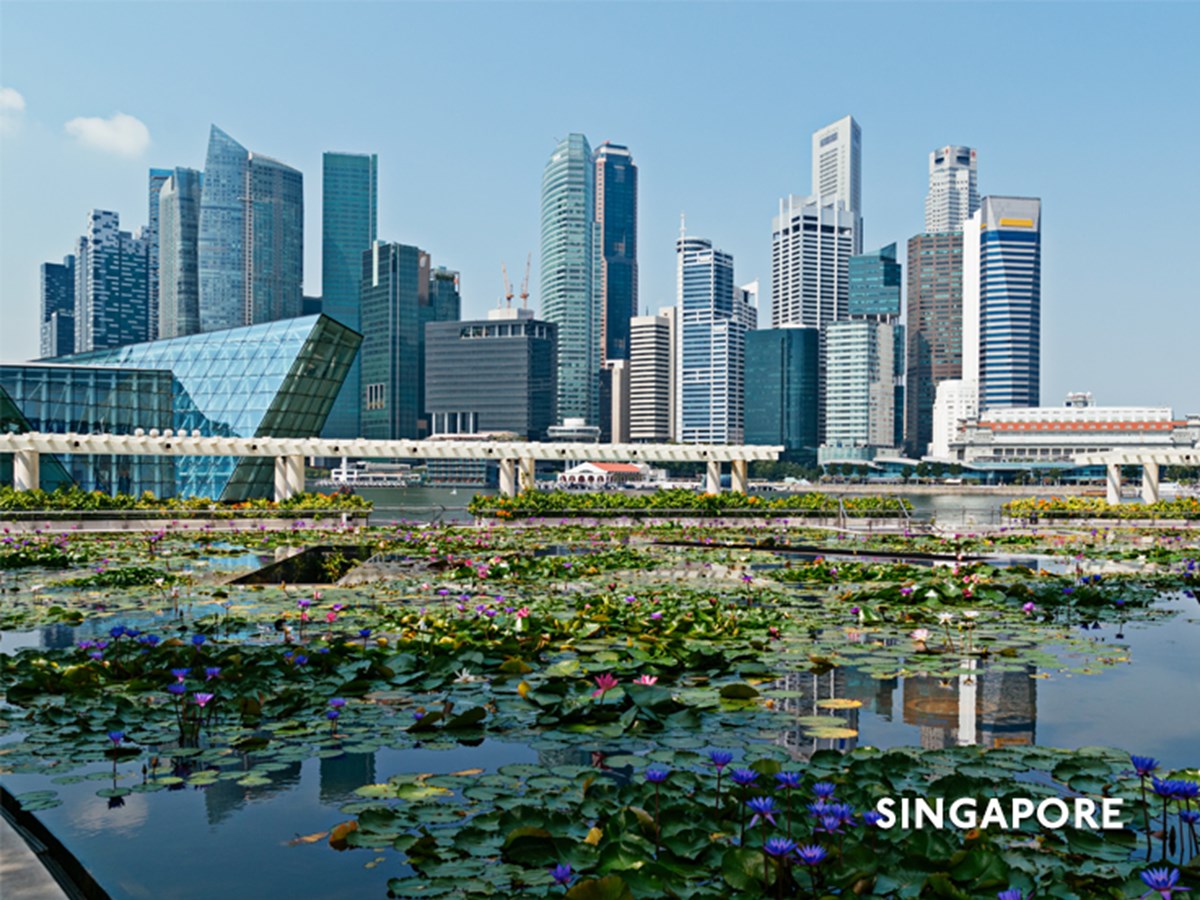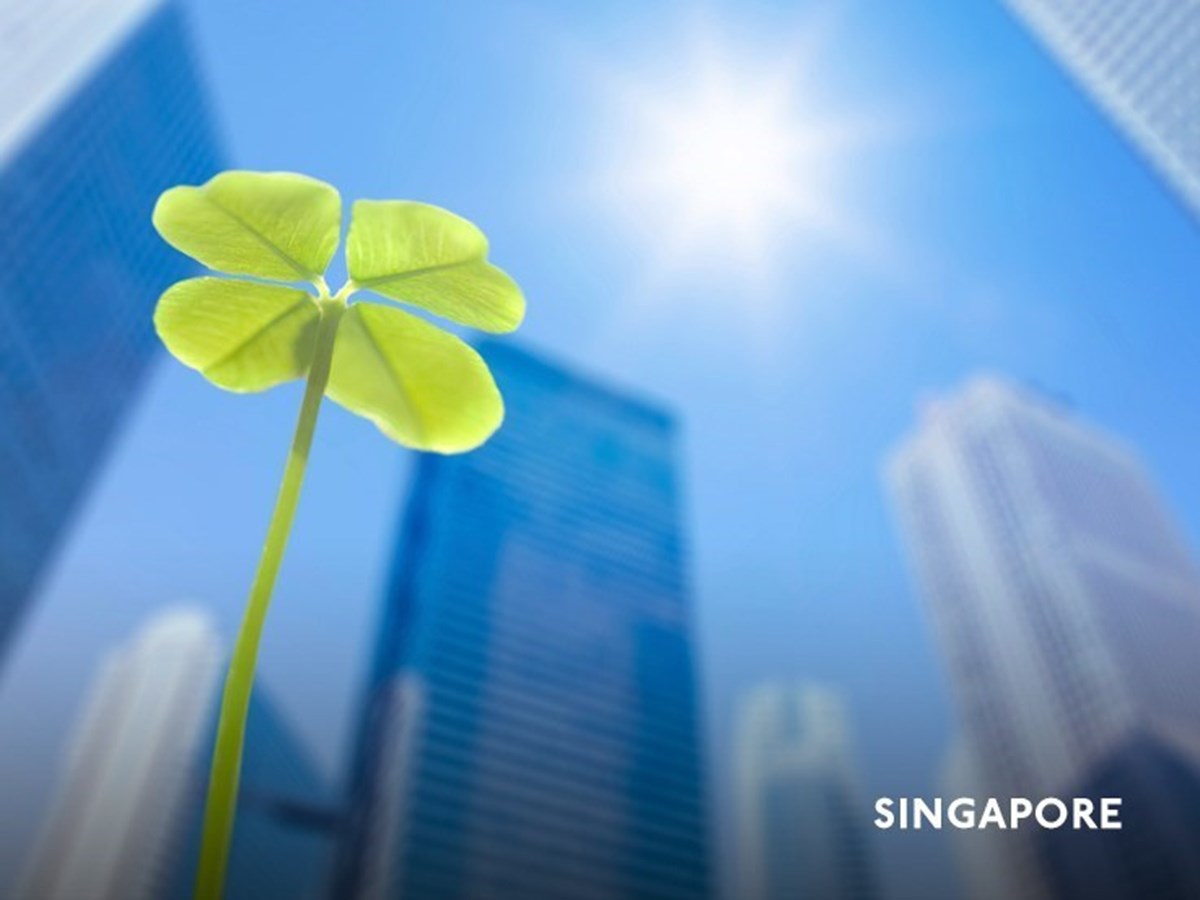
Knowledge Highlights 27 January 2025

Environmental, Social, and Governance (“ESG”) generally refers to the three key factors in measuring the sustainability and societal impact of an investment in an enterprise. These factors are linked to the concept of “responsible investment” (i.e. investing within prescribed ethical parameters). This article will explore the development of green financing in Singapore, against the backdrop of Asia’s growing sustainability investment market.
ESG investing on the rise in South-east Asia
Compared to markets in Europe and the US, the ESG investing space in Asia is still within the initial stages of development.
Notwithstanding this, the number of ESG investments in South-east Asia has been increasing steadily. According to Bain & Company’s (“Bain”) report “Sustainability Wins as Investors in Southeast Asia Shift Focus”, 56% of all private equity deals in the first half of 2019 involved companies that met Bain’s sustainability criteria, which is an increase from 30% of all such private equity deals in 2017. The total deal value of sustainability investments for this period was US$3.2 billion and is projected to surpass 2018. The report defines a sustainable investment as one that fuels growth and (i) improves the environment, (ii) increases access to basic resources or services, or (iii) provides microbusinesses access to finance and markets and promotes social mobility.
Singapore, in particular, has seen significant investments and developments with respect to ESG investing in the past few years. For example, state-owned investment company Temasek Holdings is an investor in Impossible Foods, a California-based company that produces plant-based meats and is well known as the creator of the Impossible Burger. The growing trend towards plant-based diets has been garnering the interest of investors in the foodtech sector. Commentators have identified foodtech as one of the key sustainable investment themes in 2019 as new foods and services are being developed to address the concerns arising from climate change and population growth.
More recently on 4 December 2019, investment management firm, Circulate Capital, announced the launch of the Singapore-based Circulate Capital Ocean Fund (“CCOF”), a US$106 million fund and the world’s first investment fund dedicated to preventing plastic from entering Asia’s oceans. The CCOF is also one of the 10 largest ASEAN-based venture capital funds in the market, with the goal of providing debt and equity financing to waste management, recycling, and circular economy start-ups and small and medium-sized enterprises (“SMEs”) in South and South-east Asia focused on preventing plastic pollution.
Incentivising investments with an environmental sustainability focus
To further drive investments into the sustainability space in Singapore and the region, the Monetary Authority of Singapore (“MAS”) announced on 11 November 2019 the launch of its Green Investments Programme (“GIP”), a US$2 billion investment programme that will channel funds to asset managers committed to deepening green finance activities and capabilities in Singapore. Speaking at the Singapore FinTech Festival x Singapore Week of Innovation and TeCHnology (“SFF x SWITCH”) conference in November last year, Education Minister Ong Ye Kung shared Singapore's goal to leverage technology and innovation to spur green finance.
The GIP aims to invest in public market investment strategies with a strong green focus to support environmentally sustainable projects in Singapore and the region. The first investment under the GIP will be a US$100 million placement in the Bank for International Settlements’ (BIS) Green Bond Investment Pool, in support of its global green finance initiatives.
Examples of green finance activities include increased management of green-focused funds in Singapore, actively directing capital towards investments that have a better green profile and incorporating environmental considerations into the investment process. Through such activities, MAS aims to boost investments in renewables technologies, green buildings, systems for optimising energy consumptions, and carbon sequestration.
The GIP’s potential to facilitate capital flow into green investments may play a role in addressing ASEAN’s growing opportunities in green finance. According to the 2017 report on “Green Finance Opportunities in ASEAN” by DBS Bank and the United Nations, ASEAN’s average annual demand for green finance supply is estimated to be US$200 billion till 2030, which is an indication of the availability of green investment opportunities in the region.
Growth potential of green bond markets and green lending
Aside from bolstering environmentally sustainable investments, greening Singapore’s finance sector requires a range of other instruments such as green bonds and green loans.
The International Finance Corporation’s (“IFC”) green bonds issuance in Asia Pacific today has reached US$1 billion, indicating the regional growth of the green bond market.
In tandem with the growing regional green bond market, the MAS launched its Sustainable Bond Grant Scheme (“SBG Scheme”) in 2017, which remains valid till 31 May 2023. The SBG Scheme funds eligible expenses for obtaining an external review for green bonds, subject to a cap. According to the MAS report on Corporate Debt Market Development 2019, Singapore’s green bond market stands at more than S$6 billion, with a good mix of both local and foreign issuers.
Green bonds, as an asset class, are also important to help Singapore, as an Asian centre for capital raising and enterprise financing, serve the growing need for the financing of investments to support Asia’s transition towards a low-carbon and climate resilient model. Certain assets that are heavily dependent on fossil fuels risk becoming stranded, resulting in the devaluing of loans and investments in the energy sector. It is estimated that stranded assets could wipe out US$20 trillion across the energy, industry and building sectors globally from now to 2050.
In contrast to the growth of the green bond market, green lending in Asia has been described by Mr Ong Ye Kung as being more nascent than green bonds. Accessing green loans requires firms to incur costs for developing sustainability frameworks and engaging external reviewers, which serves as a barrier to the uptake of green loans. Despite such challenges, Mr Ong has identified green lending as an area of the finance sector with significant potential for growth.
MAS is intending to develop grant schemes to help firms mitigate these costs, and consequently make green loans more accessible and mainstream. MAS will also introduce a scheme to support external reviewers and rating agencies who assess and certify green financing instruments, and encourage them to expand their operations in Singapore.
Directing Singapore’s financial system towards environmental sustainability also involves improving the measurement, mitigation, and disclosure of risks arising from climate change. On this aspect, MAS will issue environmental risk management guidelines across the banking, insurance and asset management sectors. A consultation paper in relation to these guidelines is expected to be published in 2020.